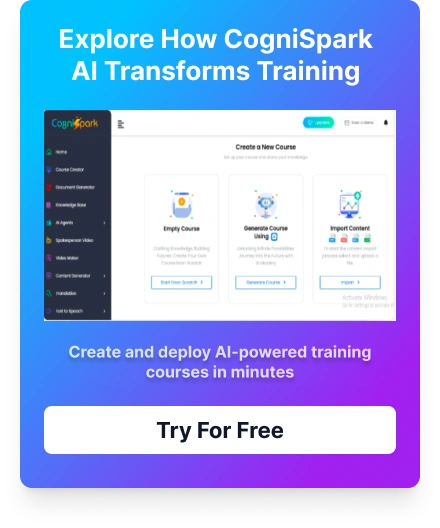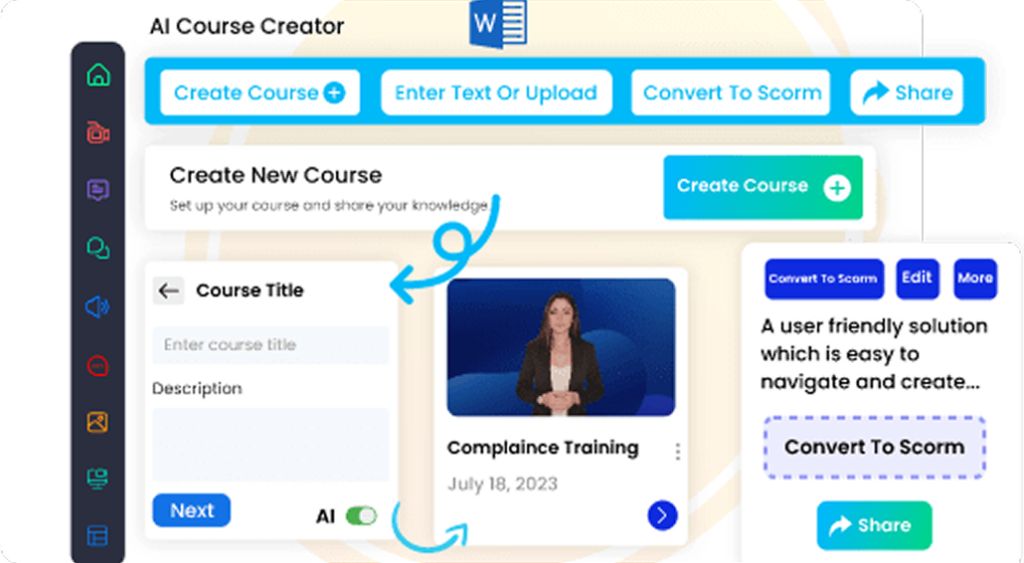What is Microlearning?
Microlearning refers to the method of delivering learning content in small, digestible chunks that can be accessed quickly and efficiently. It typically involves short, focused modules that last anywhere from a few seconds to 10 minutes. These micro-units of content are designed to meet specific learning objectives, making them ideal for busy professionals who need quick and effective training.
Why is Microlearning Important in Corporate Training?
Microlearning has gained traction as a powerful training method because of its numerous benefits. For one, it accommodates the needs of the modern workforce, which is often overwhelmed with lengthy training sessions. Let’s take a closer look at why microlearning in corporate training is becoming essential in today’s corporate landscape:
- Time Efficiency: Employees can complete short modules during a break or while commuting, ensuring that learning does not interfere with productivity.
- Enhanced Retention: Microlearning focuses on one concept at a time, which makes it easier for learners to absorb and retain information.
- Cost-Effectiveness: Microlearning modules are more affordable to produce compared to traditional eLearning courses or instructor-led training.
The Role of Microlearning in Corporate Training
Microlearning’s adaptability and effectiveness have led to its widespread use in corporate training programs. But what exactly is its role in enhancing employee learning? Let’s dive into the key aspects:
1. Boosting Employee Engagement
Employee engagement is critical to the success of any training program. Traditional methods often fail to engage employees, especially when they find the content too long or tedious. Microlearning, on the other hand, offers bite-sized learning modules that are easy to consume, making employees more likely to complete the training.
2. Facilitating On-Demand Learning
One of the most significant advantages of microlearning in corporate training is its on-demand accessibility. Employees can access microlearning modules whenever they need, whether it’s during work hours, at home, or on the go. This flexibility allows learners to learn at their own pace, enabling them to revisit content whenever necessary.
3. Customizing Training for Different Learner Needs
Corporate training often requires customization to address different skill levels and job roles. Microlearning allows organizations to develop specific, targeted content that can be tailored to individual needs. Whether it’s training for sales, HR, or management teams, microlearning provides flexibility and personalization that traditional training programs lack.
Key Benefits of Microlearning in Corporate Training
Microlearning isn’t just a trend; it’s a transformative approach to corporate training. Below are some of the key benefits that businesses can expect when implementing microlearning in corporate training:
- Faster Learning and Application: Employees can learn specific skills quickly and apply them immediately, boosting productivity.
- Greater Focus on Learning Outcomes: Since each module addresses a specific topic, employees are more likely to focus on learning outcomes and mastery of particular skills.
- Increased Flexibility for Employees: The short nature of microlearning modules gives employees the freedom to learn when it’s most convenient for them, improving overall participation rates.
Tools for Effective Microlearning
To leverage microlearning effectively, businesses need the right tools. Here are some of the most commonly used microlearning tools:
- Learning Management Systems (LMS): An LMS like Paradiso LMS can help deliver and track microlearning content.
- Mobile Learning Apps: Apps designed for mobile devices allow employees to access content on-the-go, improving engagement and retention.
- Interactive Media: Tools like quizzes, videos, and infographics can be used to make microlearning content more engaging.
The Future of Microlearning in Corporate Training
The future of microlearning in corporate training looks promising. As technology continues to advance, the integration of artificial intelligence, virtual reality (VR), and augmented reality (AR) into microlearning will create even more immersive and effective learning experiences. These technologies will allow businesses to tailor microlearning content to individual needs and even simulate real-life scenarios for enhanced skill development.























